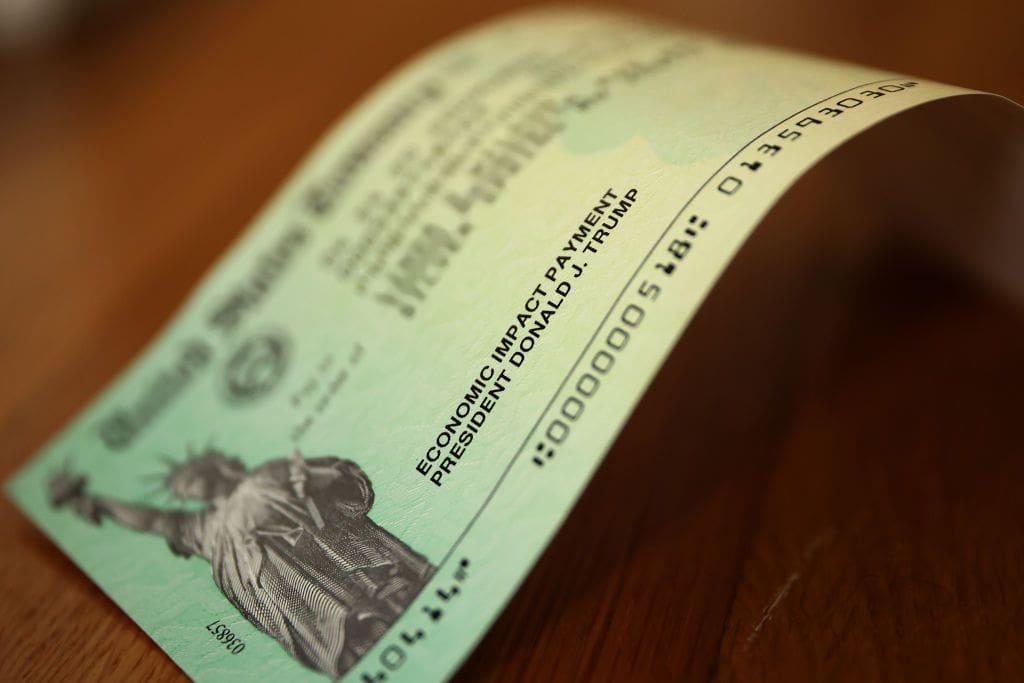No more bureaucratic nightmares. Personal checks until the pandemic ends is the only way to proceed.
By KEVIN BOYD
As the United States enters an economic downturn that rivals, if not surpasses, the Great Depression, Congress is readying another stimulus bill. The coronavirus has put tens of millions out of work and has brought the economy to a standstill. That’s why, in the next economic stimulus bill, Congress needs to include monthly checks to every American.
In March, Congress approved the CARES Act. The law included enhanced unemployment benefits for the over 33 million Americans who have lost their jobs as of this writing. It also created rescue packages for both small and big businesses. And it gave most Americans a $1,200 check.
The mistake of the CARES Act was that it distributed its benefits through overly bureaucratic means. Most states are reporting delays in the arrival of unemployment benefits and in some states the web portals where the unemployed file have crashed. The unemployment system wasn’t made to handle tens of millions of requests.
And the bureaucratic nightmares haven’t stopped there. The small business PPP program has been plagued by a disastrous launch, glitches, and poor guidance from the Small Business Administration. The CARES Act, meanwhile, has proven too restrictive on what businesses can spend their loan money on in order to have it forgiven. Companies are allowed to spend no more than 25 percent of their loans on non-payroll expenses. Fortunately, there is a bipartisan effort in the Senate to try and change the rules to give businesses more flexibility.
The CARES Act also gave a one-time cash payment of $1,200 to Americans, but only if they made below a certain amount. The problem with such Keynesian stimulus payments is they are often spent on things that do little to stimulate the economy. Another problem was the income limit. If a salesman living in the New York City suburbs made $150,000 in 2019 but still lost his job due to the shutdown, he would not have received a check because he made more than the $136,500 income limit.
In all likelihood, there will be another coronavirus relief and economic stimulus bill. The core of that legislation should be cash payments for all Americans, regardless of income. Unfortunately stale and outdated economic thinking—”zombie Reaganism”—continues to be prevalent in the Republican Party.
“Well people in hell want ice water, too,” said Senator John Kennedy when he was asked about direct payments. A spokesman for Kennedy later clarified that he was talking about bills related to funding state and local governments.
“I wasn’t a real big supporter of that in the first round,” said Senator Ron Johnson. “This isn’t your classic recession.”
Meanwhile, President Trump continues to be fixated on payroll tax cuts. He has proposed eliminating the payroll tax through the end of the year. The biggest problem with this idea is that it doesn’t help the tens of millions who are not receiving paychecks due to the coronavirus.
In addition to the payroll tax cuts, Trump is proposing a cut in the capital gains tax rate. While there’s a good argument to be made that reducing the capital gains tax will encourage investment, it’s hard to see how it would improve the current economic situation.
Who are the architects of Trump’s tax ideas? One of the main proponents of the payroll tax holiday is Reagan tax policy architect Art Laffer. Current White House economic advisor Larry Kudlow considers Laffer a mentor. Former Trump campaign senior economic advisor Stephen Moore also supports a payroll tax cut.
If President Trump is truly interested in making the GOP a worker’s party, he needs to start listening to economic advisors who are living in 2020, not 1980. That means cash payments to all Americans, $2,000 for every adult and $1,000 for every child, distributed monthly for three months, with the option of renewing for another three. This would provide immediate relief as the country begins to heal and reopen after the lockdowns. It would not strain the bureaucracy, unlike enhanced unemployment benefits or SBA loans.
Some would argue that this program would encourage people not to work. And in fact, the current enhanced unemployment program does pay some workers more than they would earn working. But paying people not to work, especially in industries where there is a lot of social contact, is exactly what we need to be doing in a pandemic. It decreases the likelihood of spreading the coronavirus.
Giving out checks is also good politics. And what better time than right before an election?
Finally, giving out these checks is the best way to distribute relief because recipients can decide what they need. They can use the money to pay the mortgage, put food on the table, put gas in the car. And if they don’t need it, they can donate it to charity or spend it however they want. Having monthly checks would also discourage the frivolous personal spending that is often the hallmark of Keynesian stimulus programs.
Now is the perfect time economically to do direct cash payments. Interest rates are near 0 percent. If there are budgetary and debt problems that arise once the economy improves, taxes can always be raised or spending can be cut in other areas. Paying people directly is a win for public health, the economy, and the American people. Congress needs to act on this now.




















